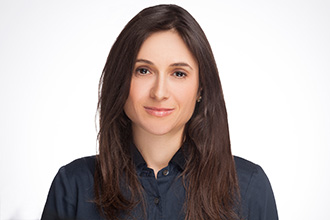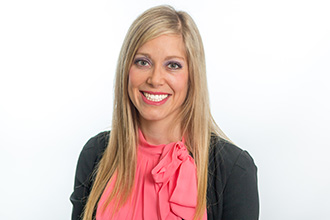Unity Health Toronto experts issue help guide Ontario’s back to school plans

By Hayley Mick

Dr. Sloane Freeman
A group of pediatric health experts is advising the Ontario government how to help children get back to school safely in the fall.
The group, which is led by SickKids and includes Dr. Sloane Freeman and Dr. Justine Cohen-Silver of Unity Health Toronto, pored over evidence around COVID-19 risk to children and developed a guidance document for the safe reopening of schools, published Wednesday. The document also examines the impact of the pandemic on children and youth.
“While we cannot eliminate the risk of transmission of SARS-CoV-2, we can mitigate the risks through steps outlined in the Recommendations for School Reopening document,” said Dr. Freeman, lead pediatrician for the Model Schools Pediatric Initiative at St. Michael’s Hospital, Unity Health Toronto.
“We also want the public to know that the risks of not opening schools to children’s mental health, social and emotional development and overall wellbeing are significant and far-reaching.”
While some provinces, including B.C. and Quebec, have already resumed some level of school, Ontario is still weighing its plan for what school will look like in September. The advisory group has been working closely with the Ministry of Education of the Government of Ontario to provide guidance.

Dr. Justine Cohen-Silver
The hope is the document can help reassure families and educators as they consider return to school plans, said Dr. Cohen-Silver, one of the School-Based Clinic lead physicians at St. Joseph’s Health Centre, Unity Health Toronto.
“It is feasible and safe to reopen schools in light of COVID-19,” she said. “We have had a great opportunity to recently flatten the curve. We now need to anticipate how to safely resume daily activities especially school which is an opportune place for children to receive education, develop and socialize especially when considering appropriate health and safety measures.”
The group is recommending a number of safety measures, including physical distancing where appropriate. They say desks should be separated, classrooms cohorts and assemblies should be banned for the time being and line-ups spaced in accordance with public health measures.
Frequent hand-washing before entering the classroom, lunch and recess, screening for symptoms of COVID-19 and the tracing and isolating of infected children and staff will be important. Children with any symptoms of illness should remain home and seek medical support appropriately.
They also argue that close interaction, such as playing and socializing outdoors, is central to child development and a low risk activity from infection control standpoint and should therefore not be discouraged.
The bottom line, they wrote, is the risk of COVID-19 to children must be balanced against the larger risks to their mental and physical wellbeing by keeping them out of the education system longer.
Dr. Cohen-Silver and Dr. Freeman, an associate scientist with MAP Centre for Urban Health Solutions, note that children with increased social risk are especially vulnerable to the impacts of missing school and the supports that come with it, including daycare and breakfast programs. It’s especially important that they return to school full time.
“Children with increased social risk and children with challenges including learning difficulties, behavioral concerns, medical conditions including anxiety, autism, ADHD among others are likely suffering the most due to social isolation and school closures,” Dr. Cohen-Silver said.
“We hope to help guide planning for return to school in order to advocate for children with increased risk to enable access once again to educational support, opportunities for optimal social development and resources they benefit from.”
About St. Michael’s Hospital
St. Michael’s Hospital provides compassionate care to all who enter its doors. The hospital also provides outstanding medical education to future health care professionals in more than 27 academic disciplines. Critical care and trauma, heart disease, neurosurgery, diabetes, cancer care, care of the homeless and global health are among the Hospital’s recognized areas of expertise. Through the Keenan Research Centre and the Li Ka Shing International Healthcare Education Centre, which make up the Li Ka Shing Knowledge Institute, research and education at St. Michael’s Hospital are recognized and make an impact around the world. Founded in 1892, the hospital is fully affiliated with the University of Toronto.
About Unity Health Toronto
Unity Health Toronto, comprised of Providence Healthcare, St. Joseph’s Health Centre and St. Michael’s Hospital, works to advance the health of everyone in our urban communities and beyond. Our health network serves patients, residents and clients across the full spectrum of care, spanning primary care, secondary community care, tertiary and quaternary care services to post-acute through rehabilitation, palliative care and long-term care, while investing in world-class research and education. For more information, visit www.unityhealth.to.
